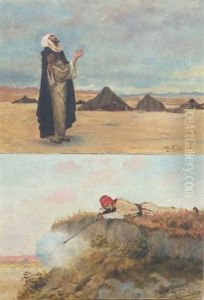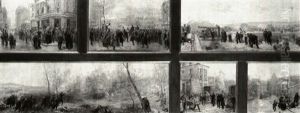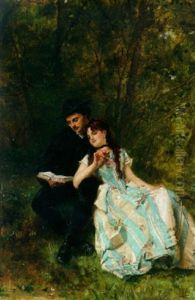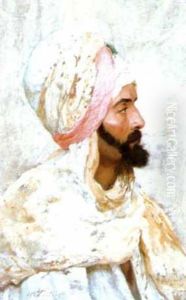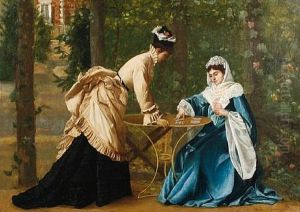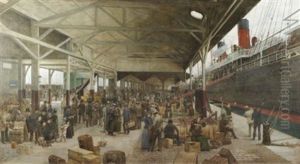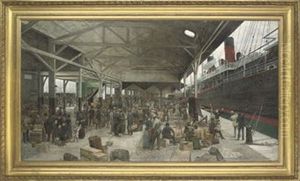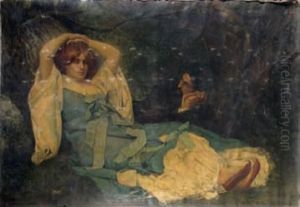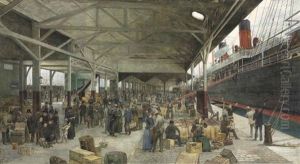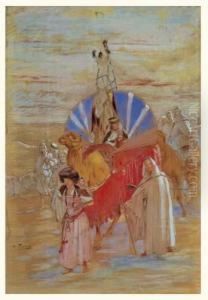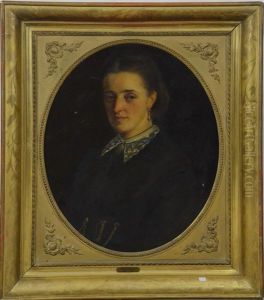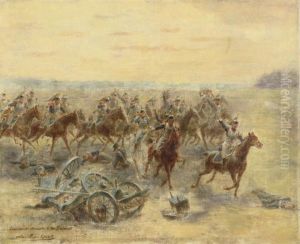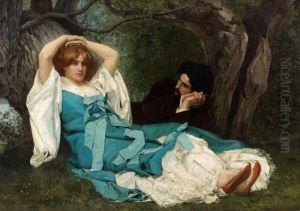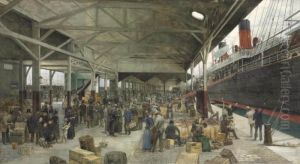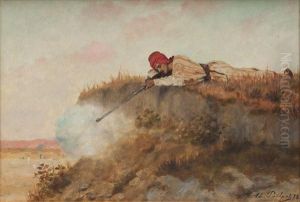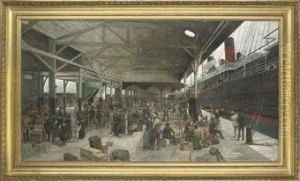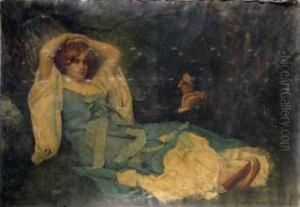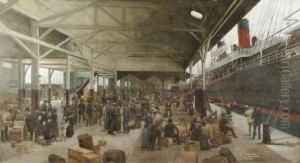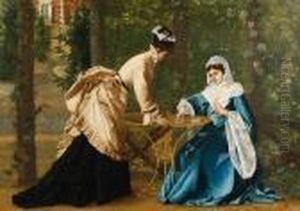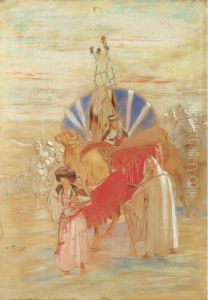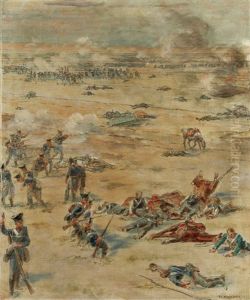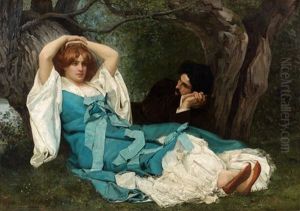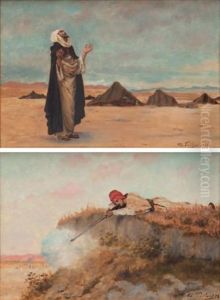Theophile Ii Poilpot Paintings
Théophile Émile Achille de Bock, known as Théophile Poilpot, was a French painter born on October 27, 1848, in Paris. He was primarily known for his genre paintings and landscapes that often depicted rural French life, particularly the regions of Brittany and Normandy. Poilpot studied under the French academic painter Alexandre Cabanel at the École des Beaux-Arts in Paris. His education there was grounded in the traditional principles of fine arts which were prevalent during the 19th century.
Poilpot's works are characterized by their rich detail, vibrant color palette, and the ability to capture the essence of the scenes he depicted. His genre paintings often portrayed the daily lives of peasants, which aligned with the broader artistic movement of Naturalism during that period. This movement sought to represent subjects truthfully without artificiality and avoiding artistic conventions, implausible, exotic, and supernatural elements.
Throughout his career, Poilpot exhibited his work at the Paris Salon, an annual art event that was the official art exhibition of the Académie des Beaux-Arts in Paris. His participation in these exhibitions helped to establish his reputation as a skilled painter. Despite the acclaim he received during his lifetime, Théophile Poilpot is not as widely recognized today as some of his contemporaries.
Théophile Poilpot's contributions to art were part of the larger 19th-century European art scene, which was marked by a variety of movements and styles including Realism, Impressionism, and Naturalism. Although Poilpot adhered largely to traditional academic standards, his works nonetheless reflect a genuine interest in the depiction of everyday life and the changing world around him.
He passed away on February 3, 1915. While Poilpot may not have achieved the same level of enduring fame as some of his peers, his paintings remain as a testament to the era's rich tapestry of artistic endeavor and are preserved in various art collections and museums.
